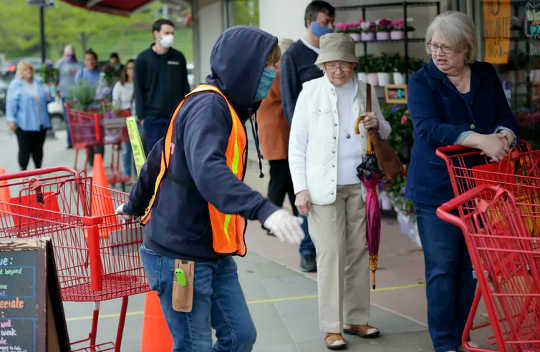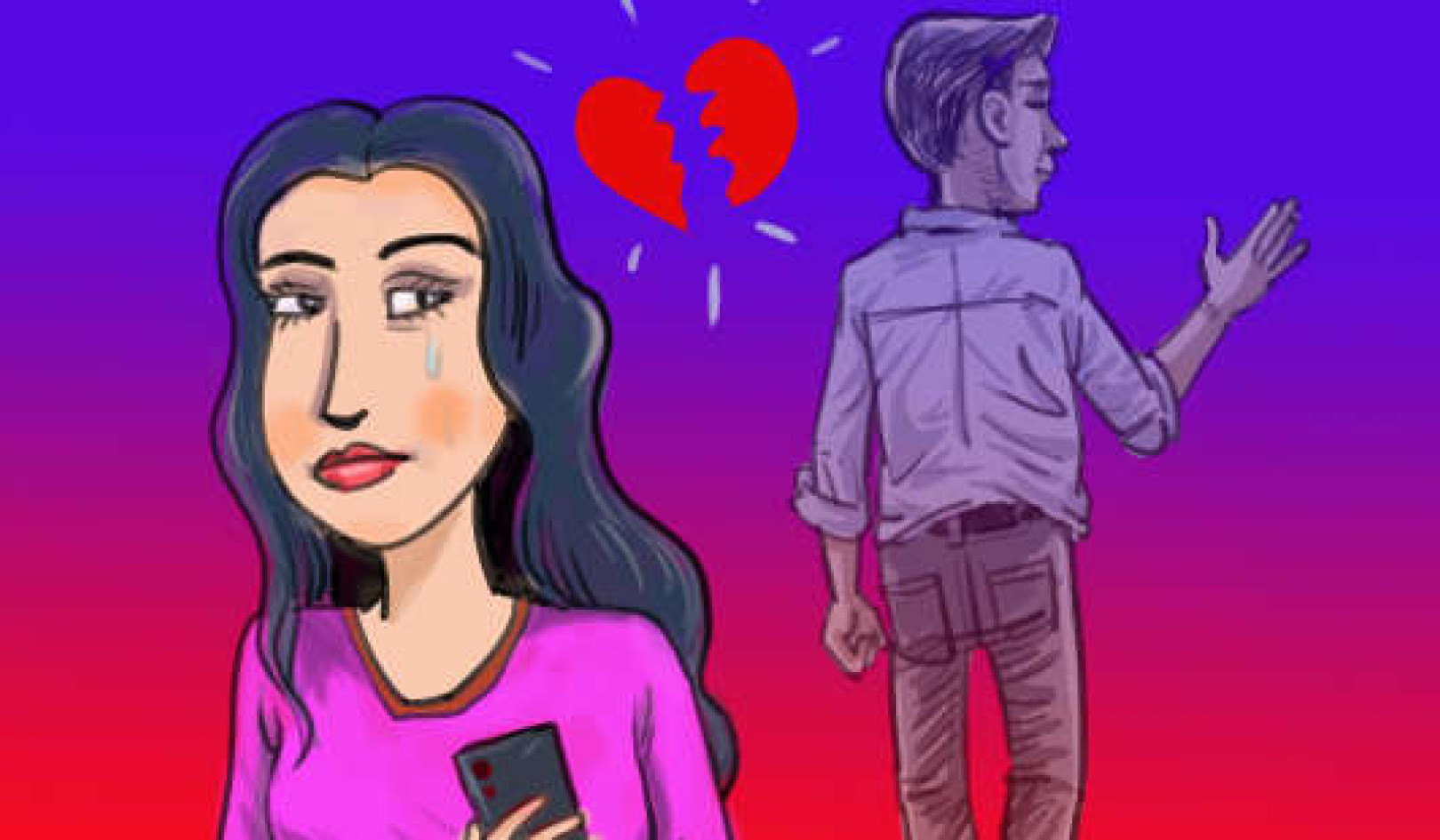
Service workers are often tasked with enforcing company mask and social distancing policies. AP Photo/Nati Harnik
Low-wage service workers increasingly are facing new physical and emotional hazards in the workplace as a result of the coronavirus pandemic, according to interviews with workers we conducted in April. We found that in addition to being afraid and anxious about their own health and possible exposure to COVID-19 while working, these employees said dealing with unpredictable customer emotions was taking an additional toll.
The workers we spoke with reported that interactions with customers were becoming emotionally charged over issues such as mask requirements and other safety guidelines. Workers of color said they were experiencing increased racial harassment.
Exposure to these emotional hazards was widespread among the workers we interviewed and was also spilling over into their home lives. A grocery worker with underlying health conditions told us her son “was super worried, like borderline tears, because he didn’t want me to go [to work] because he knows it’s not safe. And I felt horrible because I didn’t want to go, but I knew that I had to.”
Why it matters
As states and businesses try to reopen with a mix of safety guidelines and protocols, workers have often been on the front lines of enforcing health measures such as requiring customers to wear a mask or maintain social distancing. Some customers have even turned violent, which adds a threat of physical harm to workers who are already disproportionately exposed to a lethal virus.
The experiences of the workers in our study, most of whom worked throughout the shutdown, reveal the need for government and companies to address these new emotional hazards and protect them from customer harassment. Without clear governmental safety mandates, for example, workers easily become the targets of harassment as they tried to enforce their companies’ policies. Workers also said their companies often had weak enforcement mechanisms, frequently adjusted their policies and didn’t provide support in dealing with intense interactions with customers.
What’s next
These results are part of a series of ongoing studies we’re conducting with essential workers in a variety of roles, such as home care and food processing, to examine how they are navigating these new emotional risks during the pandemic. We are also looking at efforts by workers to organize to demand better protections and how these challenges are affecting their families.
How we do our work
As a team of sociologists at the University of Oregon, we rely on rich qualitative data from in-depth interviews, focus groups and participant observation. Our results here come from interviewing dozens of workers in Oregon’s hospitality, retail and food services industries whom we first met in 2019 as a part of an ongoing longitudinal study.![]()
About the Authors
Lola Loustaunau, Ph.D Candidate, University of Oregon; Ellen Scott, Professor of Sociology, University of Oregon; Larissa Petrucci, Research Assistant at the Labor Education & Research Center, University of Oregon , University of Oregon, and Lina Stepick, Labor Policy Research Faculty, University of Oregon
This article is republished from The Conversation under a Creative Commons license. Read the original article.

Books Improving Attitude and Behavior from Amazon's Best Sellers list
"Atomic Habits: An Easy & Proven Way to Build Good Habits & Break Bad Ones"
by James Clear
In this book, James Clear presents a comprehensive guide to building good habits and breaking bad ones. The book includes practical advice and strategies for creating lasting behavior change, based on the latest research in psychology and neuroscience.
Click for more info or to order
"Unf*ck Your Brain: Using Science to Get Over Anxiety, Depression, Anger, Freak-Outs, and Triggers"
by Faith G. Harper, PhD, LPC-S, ACS, ACN
In this book, Dr. Faith Harper offers a guide to understanding and managing common emotional and behavioral issues, including anxiety, depression, and anger. The book includes information on the science behind these issues, as well as practical advice and exercises for coping and healing.
Click for more info or to order
"The Power of Habit: Why We Do What We Do in Life and Business"
by Charles Duhigg
In this book, Charles Duhigg explores the science of habit formation and how habits impact our lives, both personally and professionally. The book includes stories of individuals and organizations who have successfully changed their habits, as well as practical advice for creating lasting behavior change.
Click for more info or to order
"Tiny Habits: The Small Changes That Change Everything"
by BJ Fogg
In this book, BJ Fogg presents a guide to creating lasting behavior change through small, incremental habits. The book includes practical advice and strategies for identifying and implementing tiny habits that can lead to big changes over time.
Click for more info or to order
"The 5 AM Club: Own Your Morning, Elevate Your Life"
by Robin Sharma
In this book, Robin Sharma presents a guide to maximizing your productivity and potential by starting your day early. The book includes practical advice and strategies for creating a morning routine that supports your goals and values, as well as inspiring stories of individuals who have transformed their lives through early rising.
























